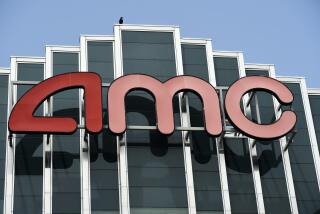AMR Unit, Continental Post Losses
- Share via
American Airlines parent AMR Corp. and Continental Airlines posted massive fourth-quarter losses Wednesday in the aftermath of Sept. 11, but the losses weren’t as bad as expected and the carriers said they’re hopeful of a financial rebound this summer.
Continental, in fact, predicted it will be profitable again in March, which would make it one of the first airlines to return to the black. The carrier was among the few that were profitable before the Sept. 11 terrorist attacks, when the weakening economy already was undermining the industry’s profits.
But the two airlines said their recent gains mainly reflect a steady increase in leisure travel because of fare sales, and that business travel--the key to their longer-term prosperity--still shows no immediate sign of rebounding. “A lot of our flights are full ... but we’re getting there mostly by heavily discounted fares, not by getting business traffic,” Continental President Larry Kellner told analysts in a conference call.
The carriers also hinted that more fare sales will be needed.
“There’s going to be pressure to continue filling up capacity” until the economy rebounds, said Tom Horton, AMR’s chief financial officer.
The pair were the first airlines to announce fourth-quarter results, capping a year in which the industry is expected to report a combined annual loss exceeding $6 billion because of the drop in air travel after the terrorist attacks.
For American, the nation’s largest airline, the quarter ended an especially horrific year.
Two of its jetliners were used in the terrorist attacks, and two months later an American jet crashed in suburban New York, killing all 260 aboard. American, like most major airlines, also slashed its operations and laid off thousands of workers to handle the plunge in air travel. And in its latest cutback, American said Wednesday that it’s going to return up to 30 of its new 717 jetliners to their manufacturer, Boeing Co., sooner than planned.
AMR inherited the planes when it bought Trans World Airlines last year. But American already has other airplanes similar in size to the 100-seat 717 and wants to streamline its fleet. Boeing builds the plane in Long Beach, but sales have been slow and American’s move could put more pressure on the plant, which Boeing nearly shuttered last year.
In agreeing to take the planes back in the second and third quarters this year, Boeing said it will seek other buyers for the jets.
In the quarter ended Dec. 31, Dallas-based AMR lost $734 million before one-time charges and gains, including its portion of the federal government’s cash bailout.
It was a record quarterly loss for AMR, and company Chairman and Chief Executive Donald Carty said the airline “still has a long way to go to return to profitability.” Horton predicted “quite a substantial loss” for AMR in the current quarter as well, but declined to elaborate on the airline’s future results.
Still, AMR’s fourth-quarter loss--equal to $4.75 per diluted share--was less than the $5.08 a share forecast by analysts surveyed by Thomson Financial/First Call.
Including the bailout cash and other one-time items, AMR had a fourth-quarter net loss of $798 million, or $5.17 a share, compared with a profit of $47 million, or 29 cents, a year earlier.
For the year, AMR’s loss including the federal aid and other one-time items was $1.8 billion, or $11.43 a share, compared with a profit of $770 million, or $4.76, in 2000. AMR’s annual revenue fell 4% to $19 billion from the prior year.
Houston-based Continental said its fourth-quarter loss before one-time items was $220 million, or $3.81 a share. After including $110 million of after-tax aid from the federal bailout and other items, Continental’s net loss was $149 million, or $2.58 a share, versus a profit of $44 million, or 70 cents, a year earlier.
For 2001, Continental’s net loss including special items was $95 million, or $1.72 a share, compared with a profit of $342 million, or $5.45, the prior year. Its annual revenue fell 9% to $9 billion.
AMR’s stock rose 23 cents a share, to $26.02, and Continental’s jumped $1.71, to $31.10 a share, both on the New York Stock Exchange.
More to Read
Inside the business of entertainment
The Wide Shot brings you news, analysis and insights on everything from streaming wars to production — and what it all means for the future.
You may occasionally receive promotional content from the Los Angeles Times.











